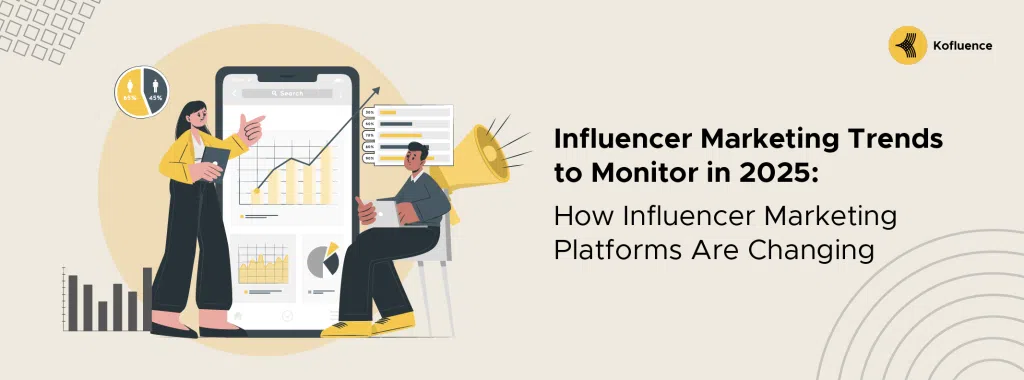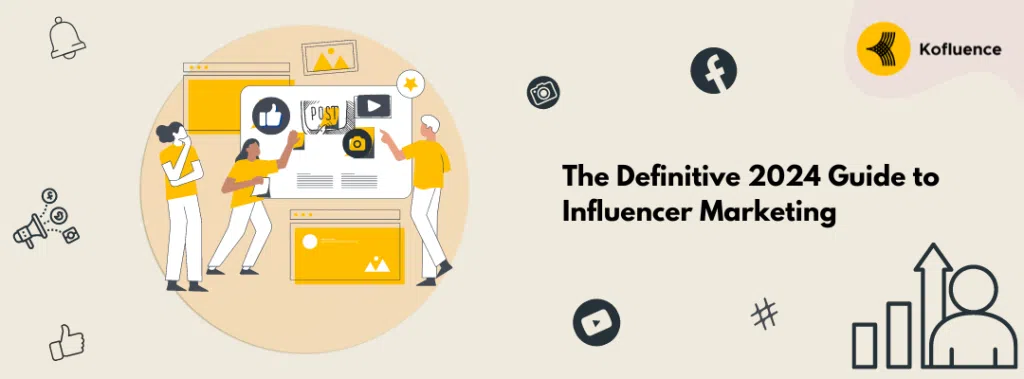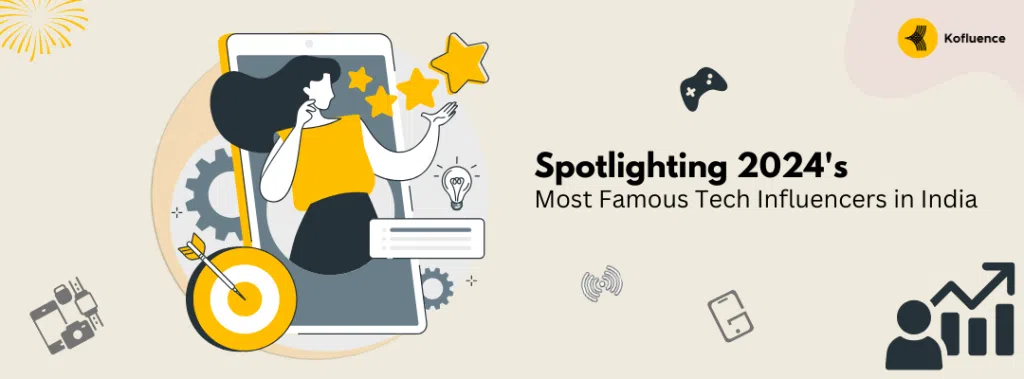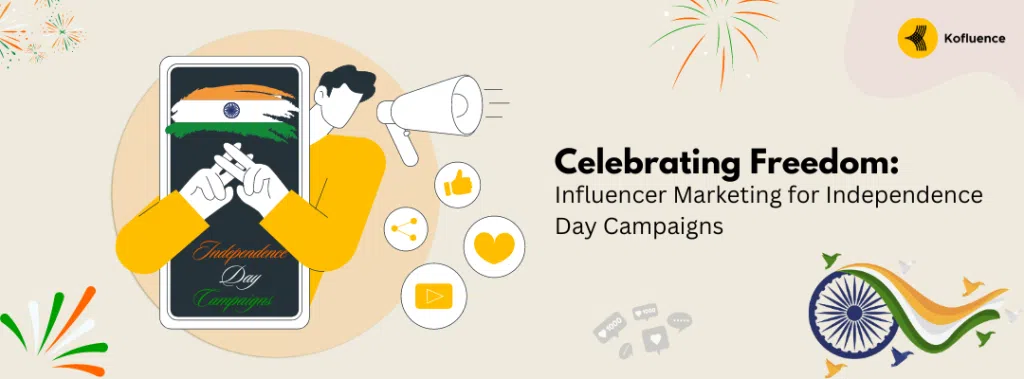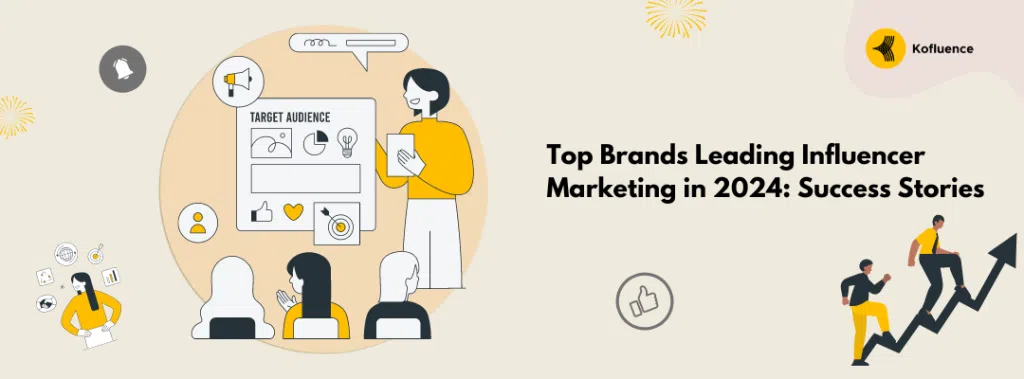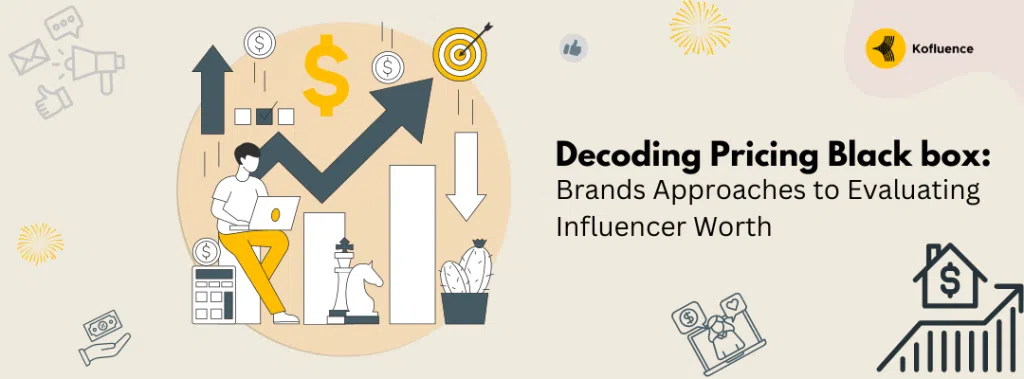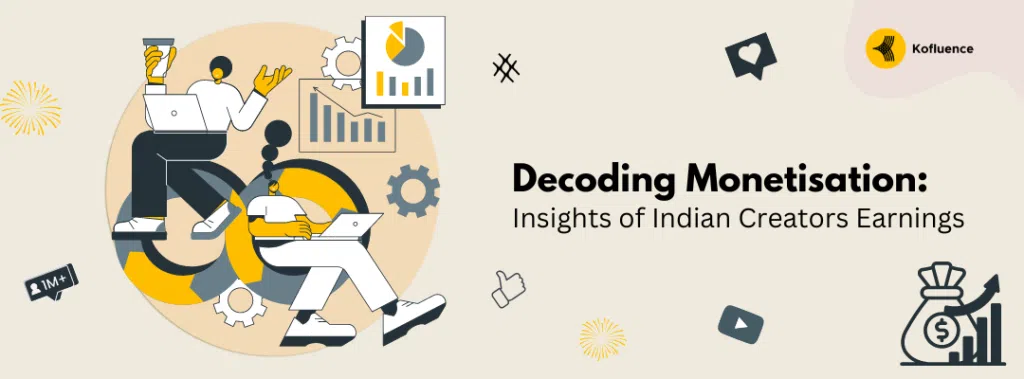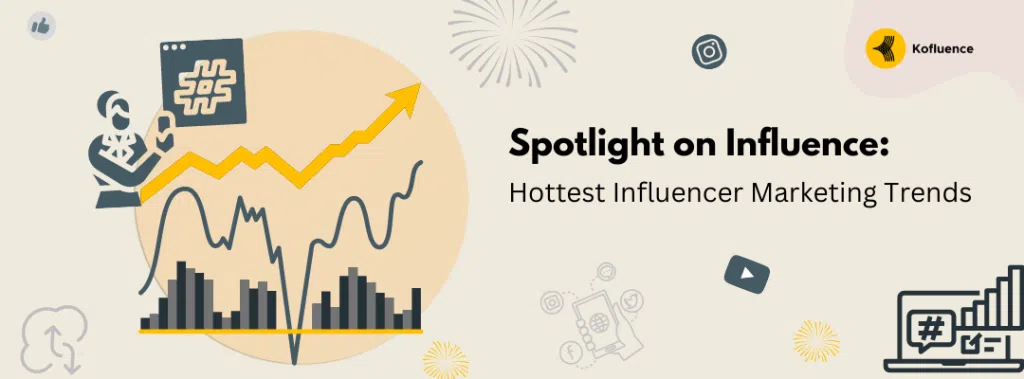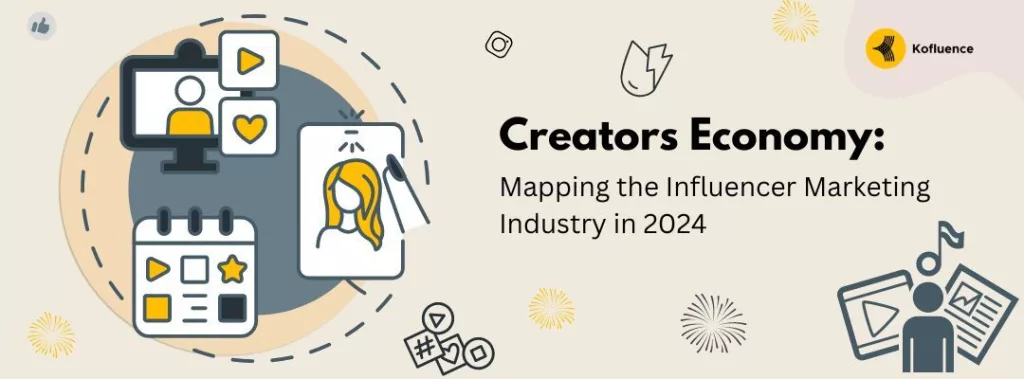Listen to Audio Blog
Table of contents:
Who Are Restaurant Influencers?
How do influencers work to promote and benefit my restaurant?
The Essential Step-by-Step Guide to Restaurant Influencer Marketing Strategy
Metrics and Analytics for Measuring Restaurants Influencer Campaigns
The Pros and Cons of Working with Influencer Marketing for Restaurants
Conclusion
Who Are Restaurant Influencers?
We often find ourselves bored on a Saturday afternoon deciding with our friends and family about what to eat. Before the social media boom, we would find ourselves Googling every type of restaurant which is a time-consuming process. But with the rise of restaurant influencers, we now can easily make decisions by visiting any influencer’s Instagram page.
Restaurant influencers talk about a plethora of cuisines – from restaurants that feel like home to experimental cuisines that might put our taste buds in a twist. They have covered every aspect of a culinary experience in restaurants, starting with the ambiance and first look at the restaurant, the service and friendliness towards customers, the cuisine style and decoration, the taste and so much more.
With restaurant influencers on every social media platform, they have managed to create art from reviewing restaurants and cuisines! These qualities of influencers have convinced restaurants to invite influencers to talk about them too.
But this led to a new question – are influencers for restaurants being paid to review a restaurant, or are they providing genuine opinions? It is right for influencers to manipulate public opinion by being paid, or must they continue to judge restaurants with honesty? These influencers have gathered a lot of clout, with many powers in their hands.
How do influencers work to promote and benefit my restaurant?
The digital world has immense potential when it comes to swaying public opinion, and influencers have taken this in their stride. Restaurants too have figured out how to use their influence to their advantage, and have realized that restaurant influencers have a great impact on a restaurant’s credibility, reputation, and reach.
Authentic Content Creation:
A restaurant influencer’s main focus while promoting your restaurant is this – what should I do to make my content engaging while at the same time maintaining my originality? When they visit your restaurant, they will try their best to portray your restaurant in a creative, innovative, and attractive light which will make their audience want to know more. Influencers tend to create such content by provoking curiosity among their audience, which is favorable as it will lead the audience to try out your restaurant.
Expanded Reach:
The audience that follows the Instagram page of a restaurant chain is small and stagnant. Moreover, most of these restaurants do not have the creative capacity to create engaging content that can turn viral or reach a broader audience. Therefore, we need influencers for restaurants that can do what restaurants cannot – make entertaining and informative content that can reach a much bigger audience.
Trust and Credibility:
The biggest advantage of working with restaurant influencers is that they create unique content that caters to the taste of their followers. No two influencers’ content are alike, each having something different to offer. This uniqueness translates into the trust that audiences have in the influencers they follow, as it is synonymous with personalization. Therefore, brands can make use of the trust that an audience has in their influencer by collaborating with them.
Engagement and Interaction:
The mantra for restaurant influencers is this – when people relate to the content on a personal level, it will be absorbed into their minds better. Their end goal is that their audience must become more curious about the products influencers promote. They must ask more questions, seek more information and show genuine interest in a brand. That is when one can say that an influencer marketing campaign is successful.
Storytelling and Brand Narrative:
Influencers do not only promote products. They are directors, filmmakers, and artists, always focused on providing the most entertaining content that one will ever see. It is this constant pursuit of theirs that differentiates them from normal marketers. They are committed to creating relatable and engaging content that can attract social media users.
The Essential Step-by-Step Guide to Restaurant Influencer Marketing Strategy
Restaurant influencers can transform the interests and tastes of their audience if their content is made right. Brands must learn how to make use of this power that they have and use it to their advantage. By following the process mentioned below, restaurants can hit the influencer marketing bullseye!
Define Your Goals:
Restaurants must create a roadmap that explains what they would like to achieve in this influencer marketing campaign and how they plan to achieve it. They must ask themselves this question before taking further steps.
Identify Your Target Audience:
Exotic foods cater to a younger audience that is willing to broaden their culinary experiences, while staple diets may cater to an older audience who like food that tastes just like what they have at home. Restaurants must find the right audience they would like to connect with.
Choose the Right Influencers:
While it is basic to understand that restaurants must work with restaurant influencers to make campaigns, they must delve further by finding influencers that focus on the same style of food as theirs. Audiences would not find it pleasing to see that an influencer they follow suddenly speaks about a type of food that has never been spoken about by them.
Develop a Compelling Pitch:
Any influencer campaign is a give-and-take offer. As much as restaurants would like to work with restaurant influencers to increase their reach and broaden their audience, influencers would also like to understand why they should collaborate with a restaurant instead of their competitors. This may include exclusive privileges, monetary and non-monetary benefits, etc.
Negotiate Terms and Compensation:
Any form of requirements from the restaurant influencer that the brand needs must be noted down. This may include the number of posts, platforms where content must be posted, perquisites, etc.
Collaborative Content Creation:
The content showcased by influencers for restaurants must be a combined effort between the influencer and the restaurant, with the former keeping their authenticity intact and trying to make it as engaging and entertaining as possible while the latter makes sure that the information that must be provided is mentioned clearly. Moreover, restaurants can provide the restaurant influencers with their best dishes to showcase, infrastructure to create the content along with interviews and showcases of the staff.
Promotion and Engagement:
The work of a restaurant brand does not stop at making sure that the content goes live. In comment sections and personal messages, people may have queries and past experiences that they will share. Therefore, restaurants must make sure that they engage personally with them.
Leverage User-Generated Content:
A hashtag is a powerful tool in any social media platform and restaurants must utilise it to its maximum. The content becomes viral when many people talk and engage, therefore brands must come up with ideas that utilize their hashtags. Furthermore, brands must keep testimonials and reviews in check so that they can consider the poor ones and repost the good ones which improves credibility.
Monitor and Analyze:
A brand must find how well the campaign has fared. This can be in the form of measuring the number of views, likes, comments, shares, traffic, and more.
Metrics and Analytics for Measuring Restaurants Influencer Campaigns
As aforementioned, the planning process to create a successful campaign with restaurant influencers involves correct analysis of how well the campaign has done. There are many fixed factors (known as metrics) that help brands quantitatively analyze how well a campaign has done and what are the places where brands can improve. This process is essential as brands cannot continuously invest in marketing without knowing the impact it has had on the business.
It helps brands prep for future campaigns and also the places where the restaurant can improve on. For example, if a social media user comments saying that one of the franchises provided food of lower quality, the brand must be prompt in fixing it.
The simplest metric to find out how well a campaign is doing is through engagement metrics. It is better if restaurants do the following – compare two different campaigns run by them and check how they have fared comparatively. Any differences could depend on a lot of factors, and brands must take them into account.
These metrics provide valuable context for understanding the campaign’s reach and visibility.
It is very favorable if campaigns attract new viewers who are not familiar with the restaurant influencer or the restaurant itself. This gives more opportunities for new visitors who may be willing to try out their food.
Lastly, to improve the real-life experiences of customers, brands must provide an online space for customers to let them know what they liked and did not like and act upon the same.
The Pros and Cons of Working with Influencer Marketing for Restaurants
For restaurants, influencer marketing can be a great tool for promoting themselves on any social media platform. But just like any marketing strategy, there are a few things one must consider before utilizing influencer marketing as it has its advantages and disadvantages.
Pros of Influencer Marketing for Restaurants:
Enhanced Visibility:
Influencer marketing promises restaurants a wider and more personal reach. By utilizing the influencer’s following, restaurants can promote themselves to an audience that trusts the influencers they follow, improving the overall reach.
Authenticity and Credibility:
By combining the exciting things that a restaurant has to offer with the authentic content creation capabilities of an influencer, people will feel free to try something they haven’t had the chance to experience before.
Targeted Reach:
With influencer marketing, restaurants will now have the ability to choose any type of audience, focusing on what target audience they wish to make contact with. Traditional forms of marketing tend to reach out to a very broad audience which may not be very memorable.
Creative Content:
Influencers make good use of their creativity to provide entertaining content. A lot of restaurant influencers showcase restaurants in an aesthetically pleasing manner with can attract a lot of customers that are scrolling through a social media platform for engaging content.
Increased Engagement:
Unlike traditional marketing, influencer marketing allows audiences to engage personally with the content. By doing so, both influencers and restaurant brands will be able to know how they feel about the content and the restaurant.
Search Engine Optimization (SEO):
Social media users search for a lot of content. The content that pops up depends on Search Engine Optimisation, which can help such campaigns to get more reach.
Cons of Influencer Marketing for Restaurants:
Authenticity Concerns:
Influencer content has become so strategic and creative that it is sometimes difficult to differentiate between authentic content and paid collaborations. This may have an impact on the audience’s trust.
Negative Publicity:
Some content may talk about poor experiences that influencers may have had while dining at a restaurant. This can damage the reputation of the restaurants, hence they must maintain quality.
Limited Control:
Restaurants may not have complete control over what an influencer talks about or how they integrate the brand with the content once it is shared. Miscommunication or lack of dialogue between both parties can lead to risky content that can show the restaurant in a bad light.
ROI Ambiguity:
Finding out how an influencer marketing campaign has directly impacted the revenue of a restaurant is quite tricky to figure out. There are many internal and external factors that come into play, so careful analysis is quite time-consuming and confusing.
Cost:
Macro-influencers charge a lot to integrate brand promotion into their content. Therefore, restaurants must invest carefully in influencer marketing.
Short-Term Impact:
Content and trends are always on the move on any social media platform. Although influencer marketing campaigns may show short-term benefits, they do not promise long-term effects.
Conclusion
Marketing has changed according to the interests of the modern consumer, as they prefer to see content that is more personal and relatable, instead of stars endorsing products. In the world of social media, influencers are seen as common people who have similar experiences, troubles, and experiences. The difference is that they are the ones that are open about these experiences while acting as a guiding light or a voice for their audience.
This in turn improves the trust the audience has in the influencers they follow. With food specifically, audiences trust their taste and recommendations; something that brands must use as a catalyst for their promotional strategies.
Influencers for restaurants provide a wholehearted view of a culinary experience, captivating their audience by creating content that is relatable to them. For example, influencers showcase the entire process of eating in a restaurant the same way a common person would experience it – opening the door, looking around, ordering, friendliness of the staff, eating the food, and the rest of a normal process – au contraire to traditional marketing where a culinary experience is stylized.
Restaurants and food chains, like any other business, must keep in touch with the current marketing trends and accept restaurant influencer marketing as one of them. They must understand the scope of such content and use it in their marketing strategies in order to position themselves in this fast-moving market.
If you found this blog to be helpful browse through our website for other blogs on similar topics or get in touch with us for your next influencer marketing campaign! Download the Kofluence app and find relevant campaigns catering to your target audience! To opt-in, download the Kofluence app here: iOS users, and Android users.

